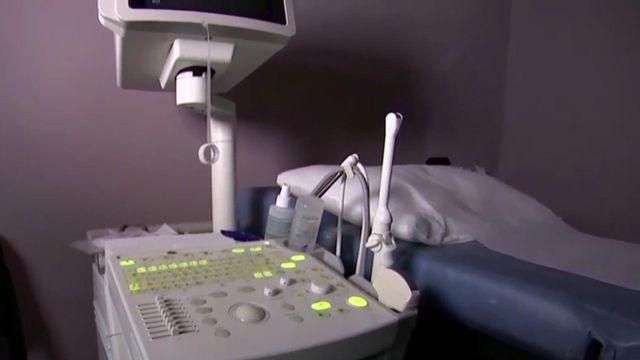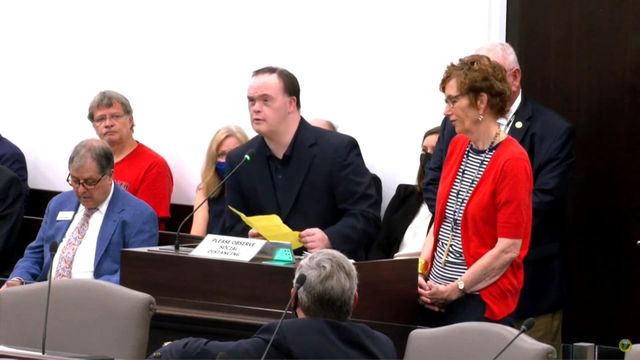Aborting a fetus with Down syndrome would be illegal under NC bill
A bill to prohibit abortions in North Carolina specifically because a fetus has Down syndrome cleared its first legislative hurdle Tuesday, despite opposition from medical groups.
Posted — UpdatedHouse Bill 453 also would block abortions to prevent a child of a specific race from being born. Under the bill, a physician would have to attest that a patient didn't decide to have an abortion because of the fetus’ sex – abortions for sex selection are already illegal in North Carolina – race or Down syndrome diagnosis.
Co-sponsor Rep. Dean Arp, R-Union, said prenatal genetic testing has become so advanced that simple blood tests can now determine if a fetus has Down syndrome.
Although sponsors didn't present any evidence in the House Health committee meeting, they say more abortions are being performed because of a Down syndrome diagnoses and that doctors are coercing women to undergo the procedure.
"It's up to us as legislators as to whether we should allow these results to be used in a way that is discriminatory – to literally eliminate people on the basis of their sex, their race or disability," Arp said. "We do not want to be the kind of society that not only discriminates, but disposes of children because of the way they are created."
Dr. Jonas Swartz, an obstetrician and gynecologist with the Duke University Health System, said the proposal "only adds stigma" to the already difficult decision to seek an abortion.
"People choose abortion for many reasons, and as a provider, I want to provide safe, non-judgmental and high-quality care," Swartz told lawmakers. "This bill would make it harder to have open and honest conversations with my patients."
The North Carolina Medical Society and the North Carolina Obstetrical & Gynecological Society both oppose the bill.
Similarly, some lawmakers criticized the bill as improperly interfering in the doctor-patient relationship.
"There is no reason for the physician to ask a woman why she is having an abortion. It is her right to have one if it falls within the timeframe for doing so," said Rep. Gale Adcock, D-Wake, a family nurse practitioner.
"I find this bill discriminatory against pregnant women," said Rep. Verla Insko, D-Orange. "I cannot imagine anything that is more threatening than to have someone take control of my body."
But three parents of children with Down syndrome praised the bill as supporting the dignity of those born with disabilities.
"Will de la Hoyt is the product of the good you have done and the ideals and value of every human life that you have upheld," de la Hoyt's mother told lawmakers after he read a statement detailing what he's accomplished with Down syndrome.
Dr. Wing Ng, a rehabilitative medicine physician with UNC Health and the father of a girl with Down syndrome, said no physician can predict how people with disabilities will fare in life.
"We cannot place the value of one life over another because of disability. That is discrimination," Ng said. "As such, the abortion of babies based on the diagnosis of Down syndrome is a form of discrimination."
Maureen Wallace, also the parent of a child with Down syndrome, said lawmakers should focus their efforts on providing more services and resources to people with disabilities instead of pushing more abortion restrictions in North Carolina.
"Do not use Down syndrome as an excuse to further a political agenda," Wallace said. "[House] Bill 453 only serves to have a chilling effect on parents during an already emotional time. All parents deserve accurate, unbiased information."
The committee passed the bill on a 17-9 vote. It has two more committees to clear before going before the full House.
Related Topics
• Credits
Copyright 2024 by Capitol Broadcasting Company. All rights reserved. This material may not be published, broadcast, rewritten or redistributed.






